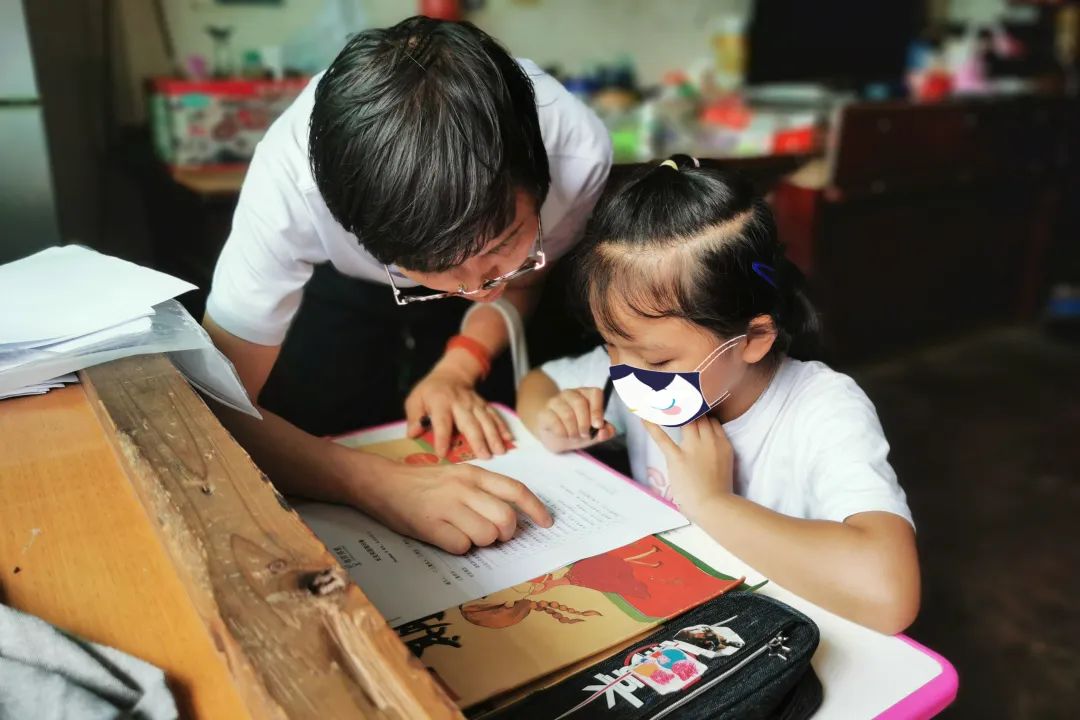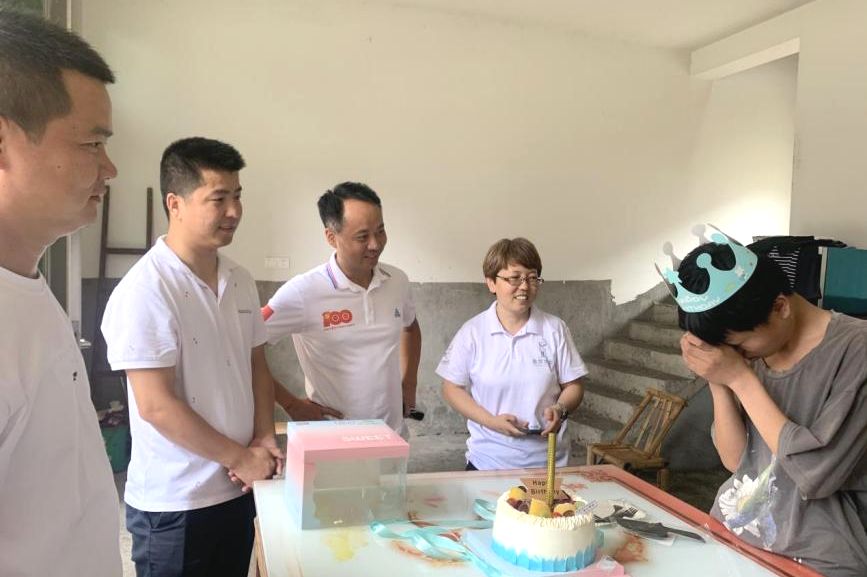On July 4, an evaluation team composed of child social workers recruited by Chunhui Children headed for Yingtan, Fuzhou, Jingdezhen, Yichun and Shangrao cities of Jiangxi province, where they would work in pairs to evaluate family guardianship of 121 de facto unattended children and orphaned children living in communities.
The evaluation targeted community-based orphaned children and de facto unattended children who were threatened with harm and in need of proper guardianship, or who were suffering from special needs, displaying untypical behaviors or struggling against family misfortunes. Following the evaluation, the children would be put under classified protection based on the level of risks they were facing.
This year, in line with the Regulations on Evaluating Guardianship of Minors in Jiangxi Province, Chunhui Children, Jiangxi Civil Affairs Office and Jiangxi Minor Protection Center jointly developed the Standards on Evaluating Guardianship of Minors in Jiangxi Province (the “Standards” for short), which specifies the evaluation procedures and requirements, and provides standard questionnaire templates and checklists.
What did the evaluation cover?
Following the above Standards, the evaluators collected and sorted out information of 121 at-risk minors and their families. The evaluation covered the following two areas:
1. Family care
Family care is essential for the development of minors. A sound living environment and desirable family care give children a sense of security and help bring them out of the trauma they have been exposed to. During their home visits, the evaluators learned about the children’s living environment, access to quality food and medical treatment, and relationship with other family members.
2. Education and development
The evaluators also looked into the children’s schooling, rehabilitation, psychological wellbeing, social environment, peer relationship, physical exercises and recreation opportunities. What they found showed whether the guardians of these minors had the ability to guarantee their rights to education and development and protect them against existing or potential harm.
To maximize the minors’ rights and interests, the evaluation prioritized the mandatory reporting system stipulated in the Law on Protection of Minors of the PRC as its guide. Any reasonable belief of child physical injury or sexual abuse (see the nine circumstances when a child needs protection as listed in the appendix) would be reported to a child protection authority.
How was the evaluation delivered?
The evaluators learned in multiple ways about the children’s and their families’ most urgent challenges and needs.
To evaluate the children, the evaluators started by engaging them in age-appropriate games to earn their trust, and then got close to them and had a heart-to-heart talk with them.
Besides, the evaluators educated the parents on relevant laws and policies to help them improve childcare and education skills.
Most importantly, the evaluation was a joint effort of the evaluators and the local minor protection authority. As a link between families and the local government, the evaluators (social workers) reported problems they identified in a timely manner, which helped boost minor protection and facilitate the set-up of minor protection networks.

“The evaluation day is also my birthday”
In the course of evaluation, something unexpected happened.
While talking to a boy attending a junior middle school in Shangrao city, the evaluators found that the boy was so ill at ease that he kept his head down and his mouth shut. They invited him to write down his name and birthday. It was such a big surprise that his birthday happened to be that evaluation day. Asked whether he had had any birthday party before, he shrugged it off saying “No. Don’t care.”
Following the talk with the boy, the evaluators decided to throw him a birthday party. Staring at the nice cake specially designed for him, the boy lowered his head and choked with sobs. For the first time ever, he had a loving birthday celebration. He closed his eyes and made a wish. When his eyes reopened, the evaluators saw a faint smile on his face and a flicker of light in his eyes.

Because of our unexpected discovery and small act of love, the boy had an extraordinary experience on that ordinary day. As the evaluation covered a very expansive area of Guizhou province, the evaluators had to travel long distances to the program sites, but that didn’t stop them from reaching out to the children and doing everything they could to touch their lives.
Appendix
Mandatory reporting refers to the legal requirement of certain professional groups to report a reasonable belief of child physical or sexual abuse to child protection authorities. A report need be made under the following circumstances:
1. A minor’s private part has been or is suspected of having been injured
2. A female minor under 14 years of age experiences or is suspected of having experienced sexual abuse, pregnancy or abortion
3. A female minor above 14 years of age experiences or is suspected of having experienced pregnancy or abortion caused by sexual assault
4. A minor suffers from multiple physical injuries or severe malnutrition, or is unconscious because of identified or suspected domestic violence, bullying, abuse, beating or contrived anesthesia
5. A minor is disabled by or dies of/from suicide, self-mutilation, work-related injuries, poisoning, contrived anesthesia or physical abuse
6. A minor is abandoned or unattended for a long time
7. A minor has unclear origins or is missing, abducted and trafficked
8. A minor is found to be part of a begging organization
9. Other forms of harm or abuses